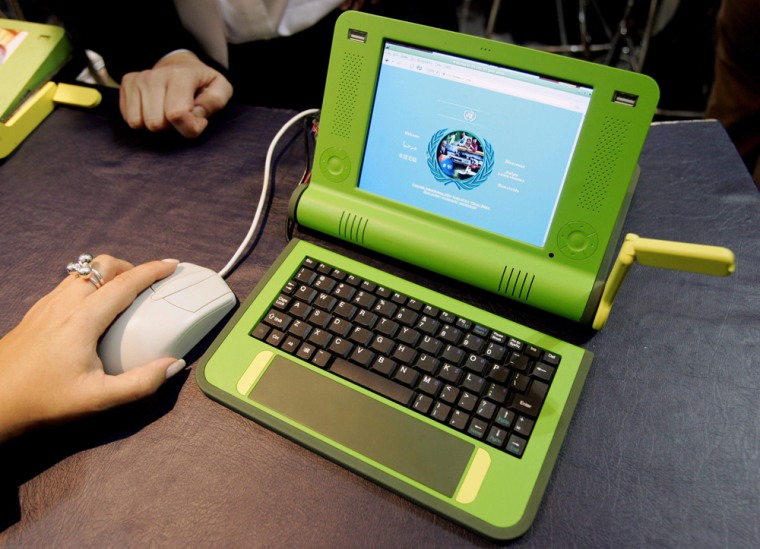The ambitious project to provide low-cost laptop computers to poor children around the world is about to take a small step forward. More than 500 children in Thailand are expected to receive the machines in October and November for quality testing and debugging.
The One Laptop Per Child program, which began at the Massachusetts Institute of Technology's Media Lab and now is a separate nonprofit organization, hopes to deploy 5 million to 7 million machines in Thailand, Nigeria, Brazil and Argentina in 2007.
Thailand's government is expected to buy 1 million in the first year.
But Prime Minister Thaksin Shinawatra announced in a nationwide radio broadcast that "if this project is completed" it would reach all Thai elementary students. He said each student would get a free computer "instead of books, because books will be found and can be read on computers."
The creator of the laptop program, Nicholas Negroponte, has set a goal of making the laptops for about $100 each, though he expects the initial figure to be slightly higher and the long-term cost slightly lower.
The machines will use the free Linux operating system, include flash memory instead of a hard drive and run on electricity created by a hand or foot pump.
China and Egypt have also expressed interest, but at least one country initially expected to take part, India, has decided not to be in the first round.
Walter Bender, a Media Lab founder who serves as One Laptop Per Child's president of software and content, said the organization still is talking with Indian officials and non-governmental agencies.
"While India will not be part of the year-one launch, with 25 percent of the world's children, it is within our mission to work with India down the road," Bender said in an e-mail this week.
